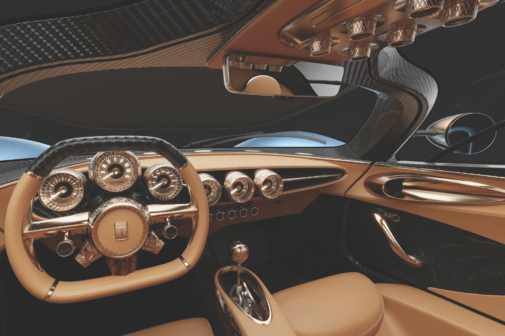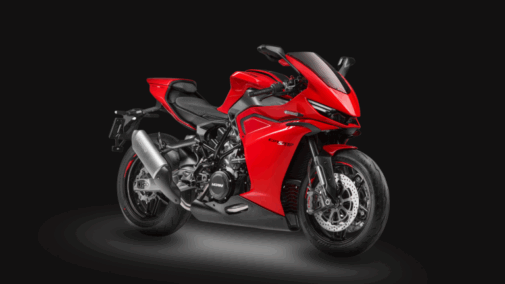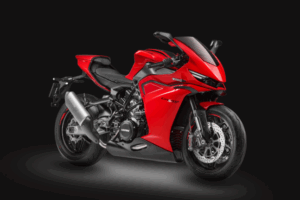Every once in a while, a car comes along that makes you stop scrolling, squint a little, and wonder if you’ve accidentally time-travelled. The De Tomaso P72 is that kind of car. It looks like it fell out of a dream someone had in the 1960s — all sweeping curves, polished metal, and drama — and landed smack in the middle of today’s carbon-fibre, AI-assisted supercar arms race. But unlike the others, the P72 prides itself on being a purist’s wet dream — all analogue and manual.
It harks back to the ’60s — specifically, the De Tomaso P70, a stillborn racer dreamt up by Alejandro de Tomaso and Carroll Shelby. That project never saw proper daylight, but the P72? It makes up for lost time with glorious excess. The shape is otherworldly… almost like a concept sketch for Le Mans 1969. It’s got a long tail, wildly flared fenders, and a glasshouse that looks like it belongs in a sci-fi movie. But despite the retro skin, it’s entirely modern underneath.
Sitting on a carbon monocoque developed by Apollo Automobili, the P72 is powered by a supercharged 5.0-litre Ford V8 tuned by Roush. No hybrid systems, no complicated computers — just old-school displacement and a 6-speed manual gearbox. It’s analogue where everything else is automated, soulful where others feel synthetic.
Inside, it’s a horologist’s fever dream — quilted leather wrapped around every surface, copper switchgear gleaming like watch parts, and the exposed gear linkage that reminds you that this machine has moving parts — and a pulse.
Only 72 will ever be made, and each one will likely disappear into a private collection or a secret garage somewhere in the hills of Switzerland. But the fact that something so gloriously indulgent exists in today’s world of homogenised speed is probably enough. The P72 is a reminder that fast cars don’t always need to chase lap times. Sometimes, all they need to do is just chase your imagination.


















